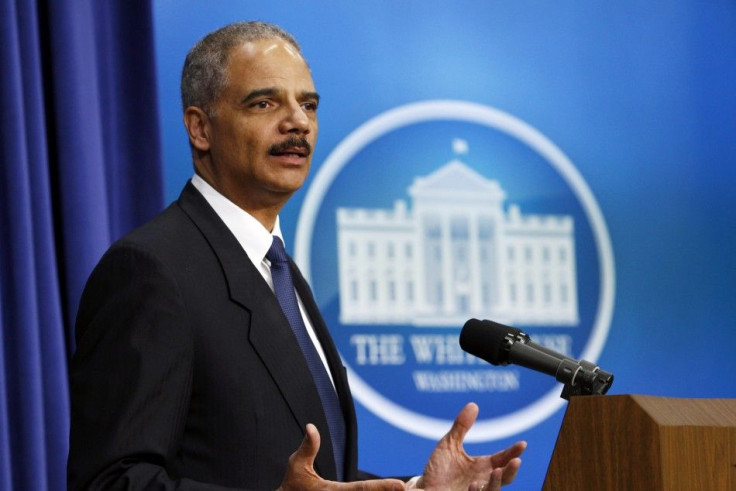Voter ID Law In Texas Hits Hispanics Hardest: U.S. Justice Department [LETTER]

The U.S. Department of Justice Monday declined to green light Texas' new photo ID requirements for voters, saying the law would disproportionately affect Hispanics.
In a letter to Texas officials, Assistant Attorney General Thomas E. Perez said the Justice Department had to reject the law under Section 5 of the Voting Rights Act -- a key provision of the landmark 1965 law that allows the federal government to pre-clear any election law changes in areas with a history of racial discrimination.
Texas Gov. Rick Perry, a Republican, signed the law in May, with state officials requesting Justice Department preclearance in July.
Based on Texas' election data, Hispanics would be 46 to 120 percent more likely than non-Hispanics to lack the correct form of photo identification needed to vote.
Even using the data most favorable to the state, Hispanics disproportionately lack either a driver's license or a personal identification card issued by [the Texas Department of Public Safety], and that disparity is statistically significant, Perez, the Justice Department's civil rights chief, wrote. The state has not met its burden of proving that... the proposed requirement will not have a retrogressive effect.
Texas, meanwhile, had anticipated the Justice Department's decision, saying in a January lawsuit that there was a seeming probability of an eventual rejection. Accusing the agency of slow walking the approval process, Texas sued to have its voter ID law considered by a three-judge panel in Washington, instead of Justice Department officials.
Similar voting rules in other states are aimed at combatting fraud at the polls, though the Justice Department said Texas never offered evidence of in-person voter impersonation that new ID laws are supposed to stop. Attorney General Eric Holder has cracked down on the proliferation of strict ID laws that disenfranchise poor, student and minority voters; South Carolina's law was recently rejected.
After analyzing Texas' data -- a set from September and a set from January -- the Justice Department concluded the law's burden will fall heavily on Hispanics, who make up 21.8 percent of Texas voters.
In the September data, Hispanics make up a third of the 4.7 percent of the state's 603,892 registered voters who lack proper identification. Hispanics are also 46.5 percent more likely to be turned away from the polls.
The January data shows Hispanics making up 38 percent of 795,955 registered voters without necessary identification. Hispanics are more than twice as likely -- 120 percent -- to be affected by the law, according to the recent data.
The state never provided information about whether the law disproportionately impacts black and Asian voters, the Justice Department said.
Texas has touted the law's provisions that ensure any eligible voter can receive the necessary identification, but the Justice Department suggested these safeguards fall short of that goal.
To get a free election identification certificate, first-time applicants must have various supplemental documents and undergo an application process that includes fingerprinting and traveling to a driver's license office, a long distance in some counties.
Without extra documentation, a voter would have to spend $22 to get a copy of their birth certificate, according to the letter.
The state has failed to propose, much less adopt, any program for individuals who have to travel a significant distance to a DPS office, who have limited access to transportation, or who are unable to get to a DPS office during their hours of operation, Perez wrote. This failure is particularly noteworthy given Texas' geography and demographics, which arguably make the necessity for mitigating measurers greater than in other states.
© Copyright IBTimes 2025. All rights reserved.





















